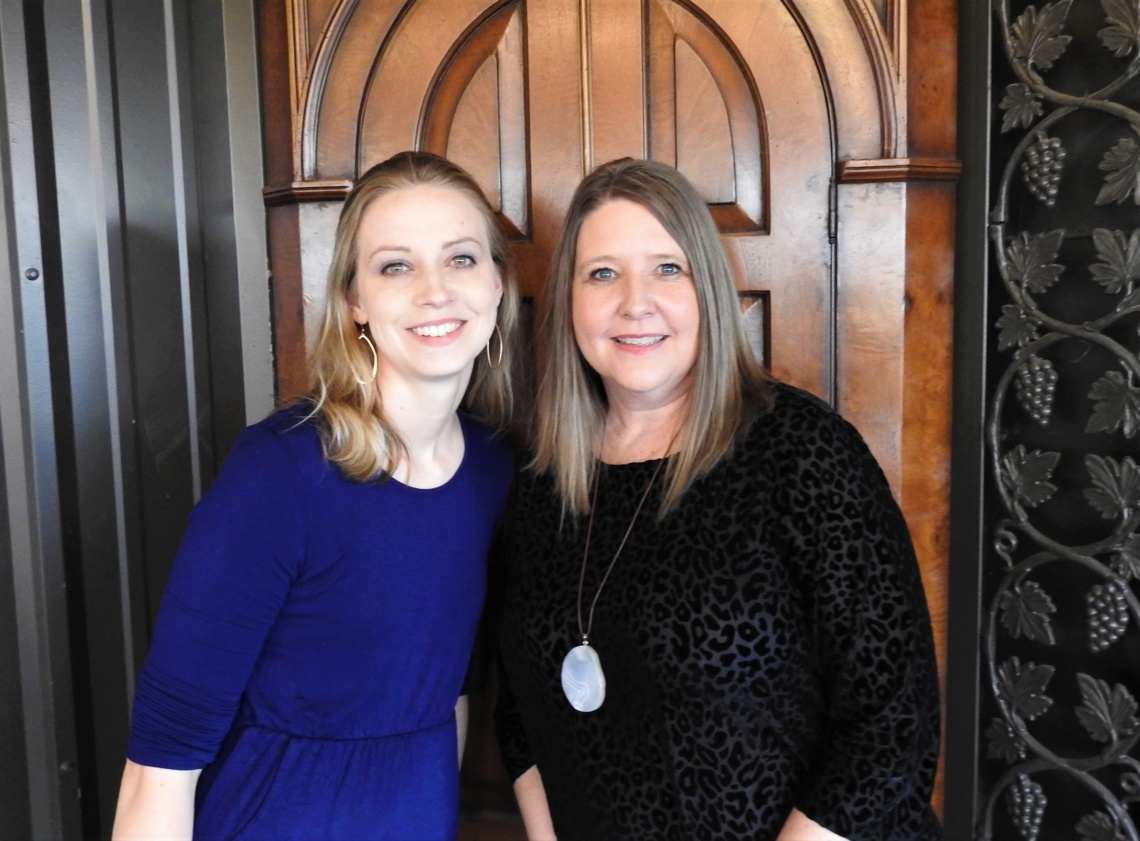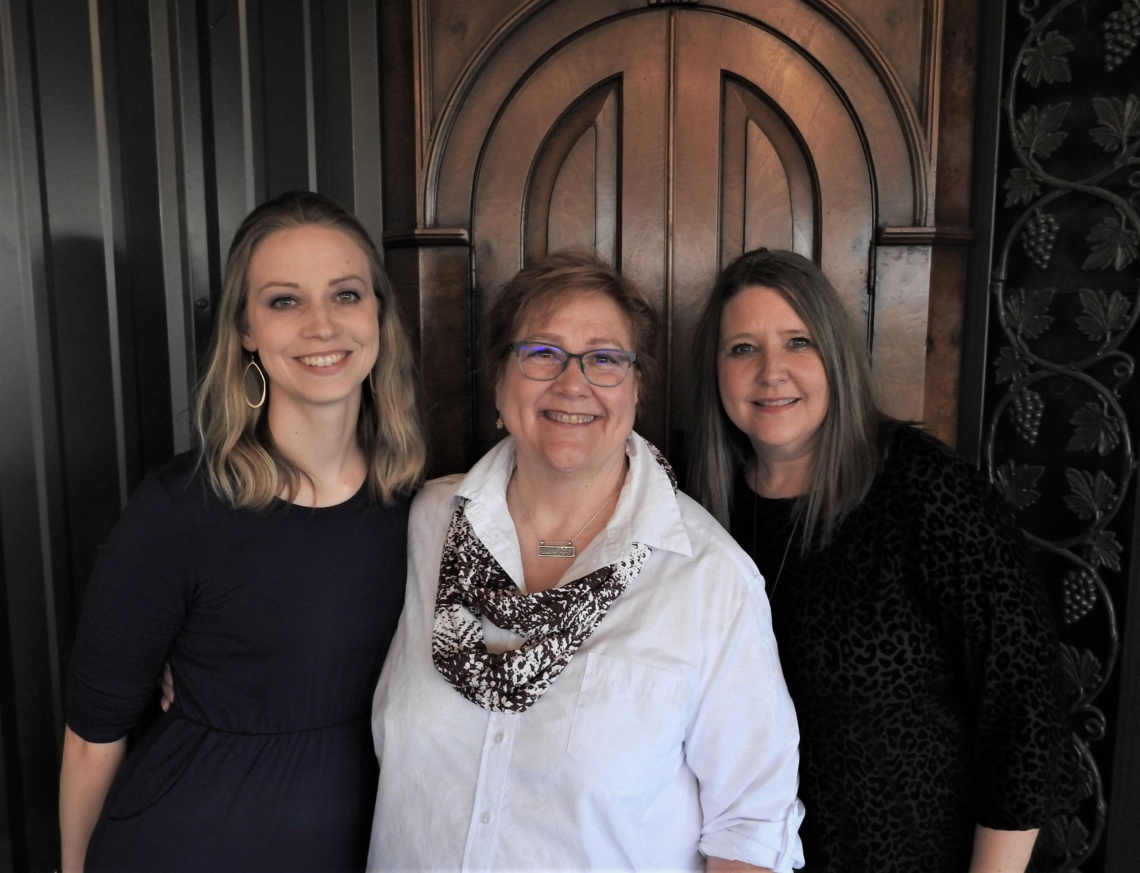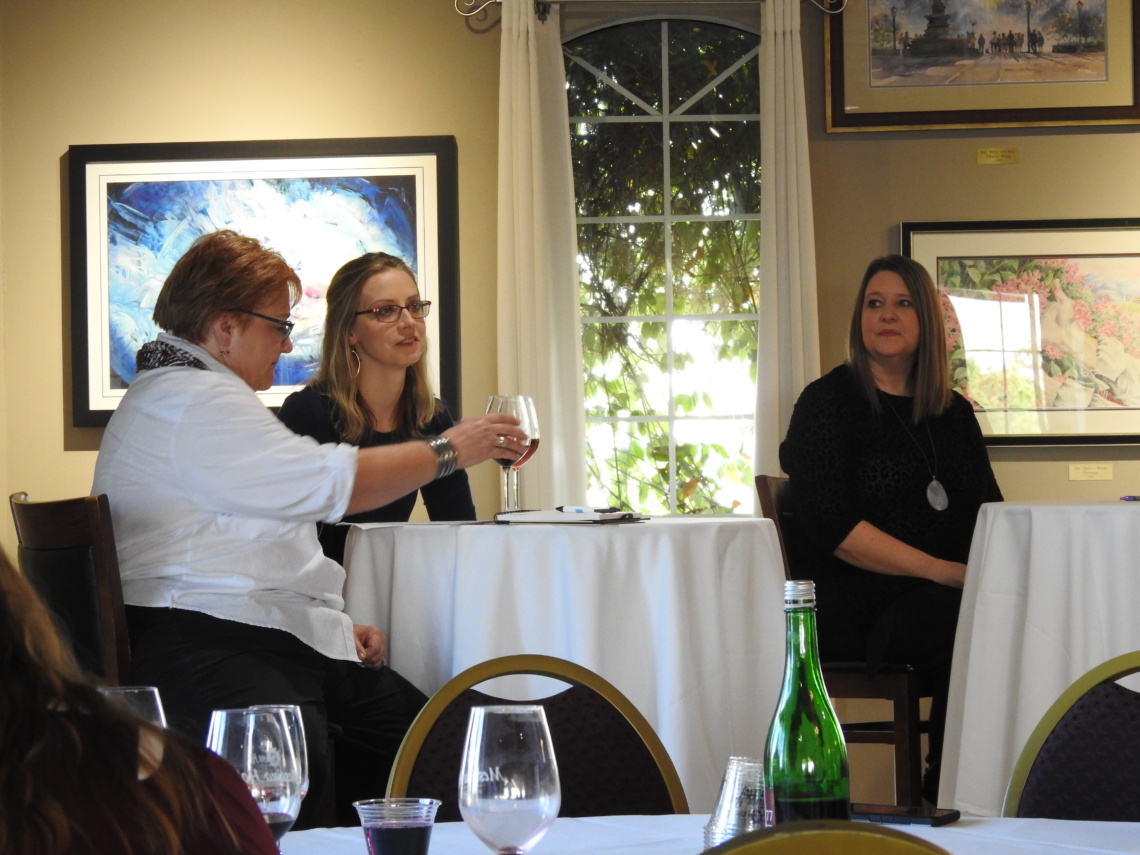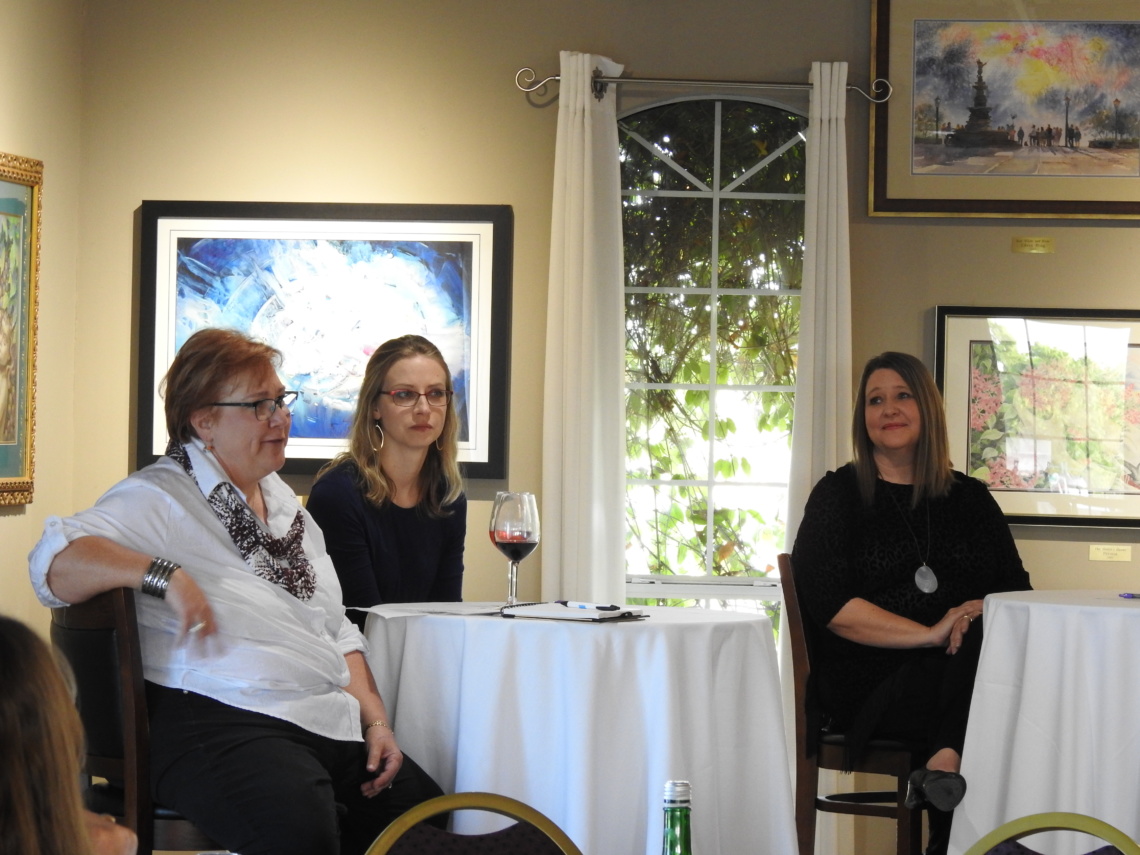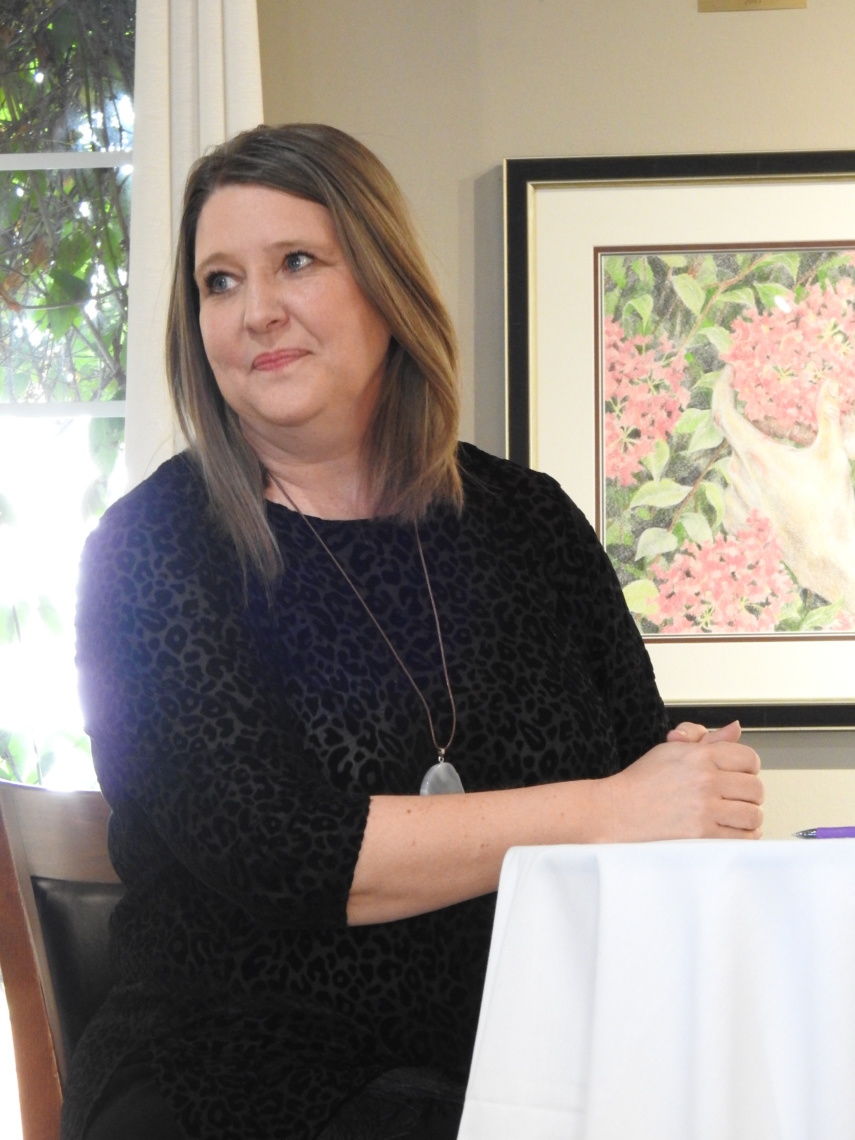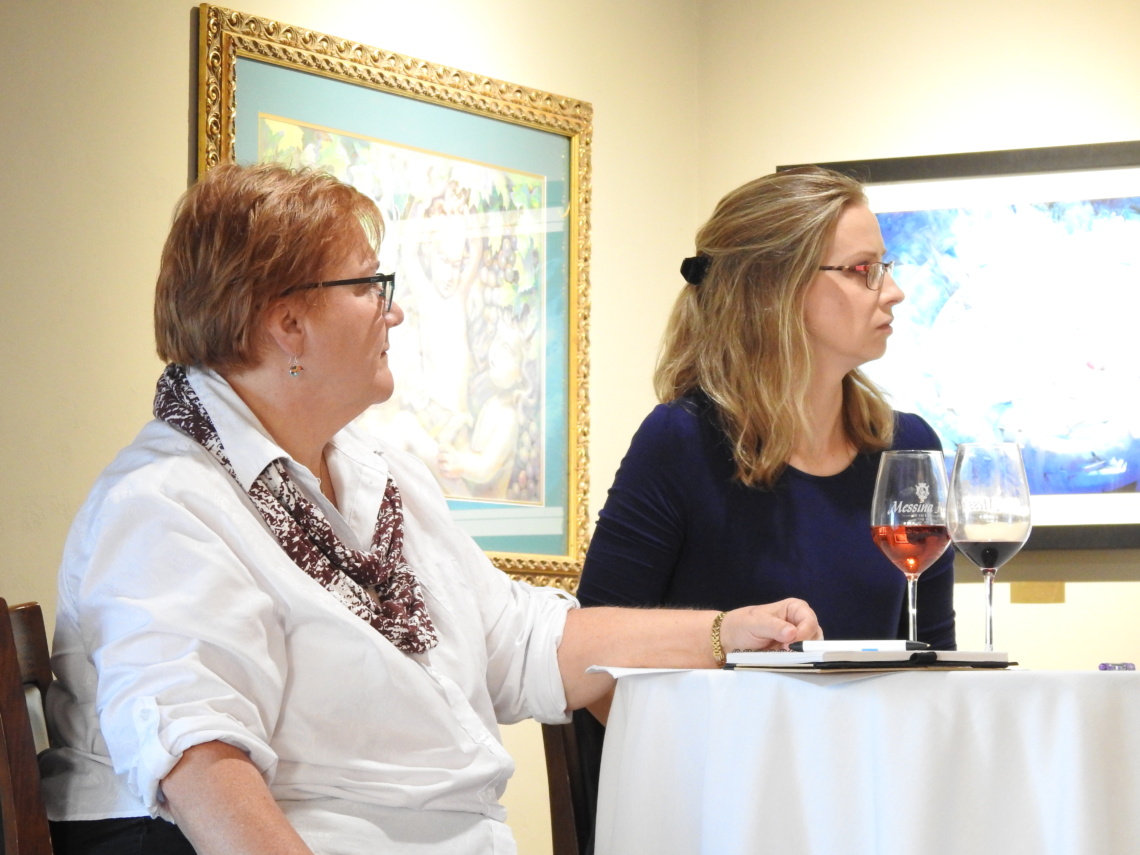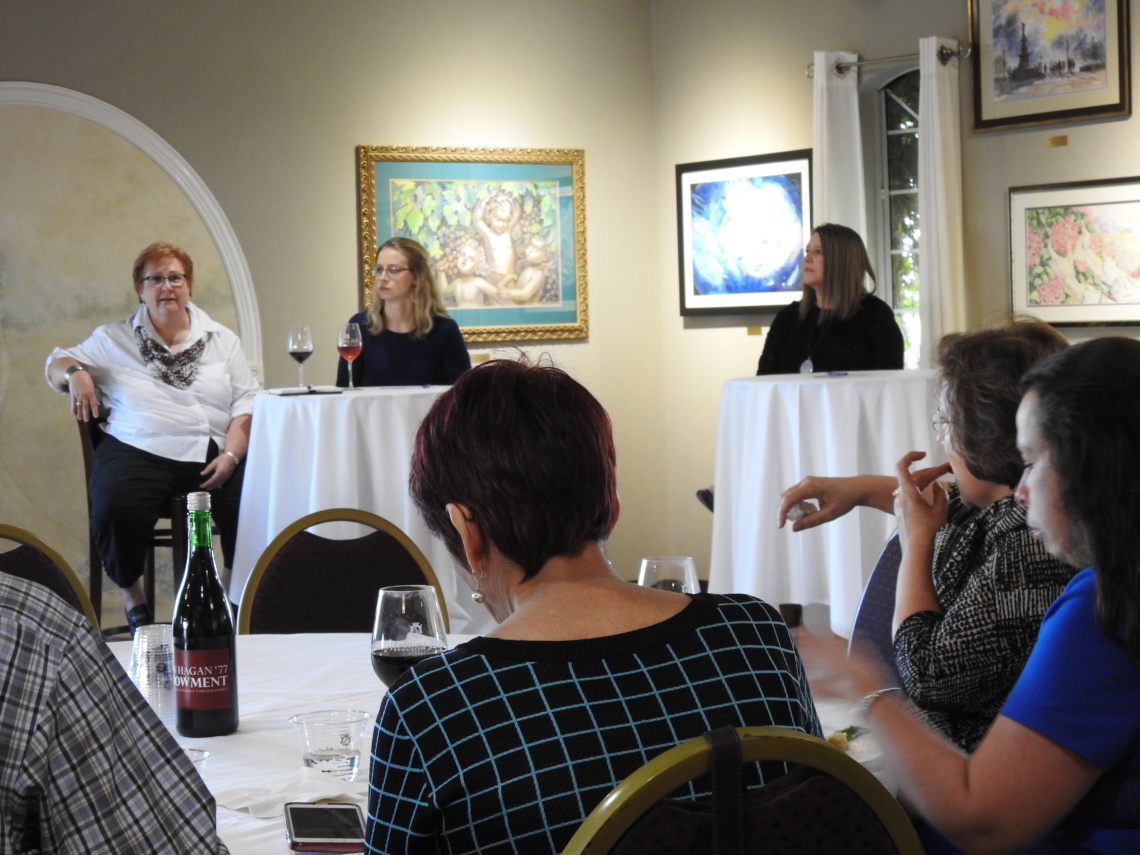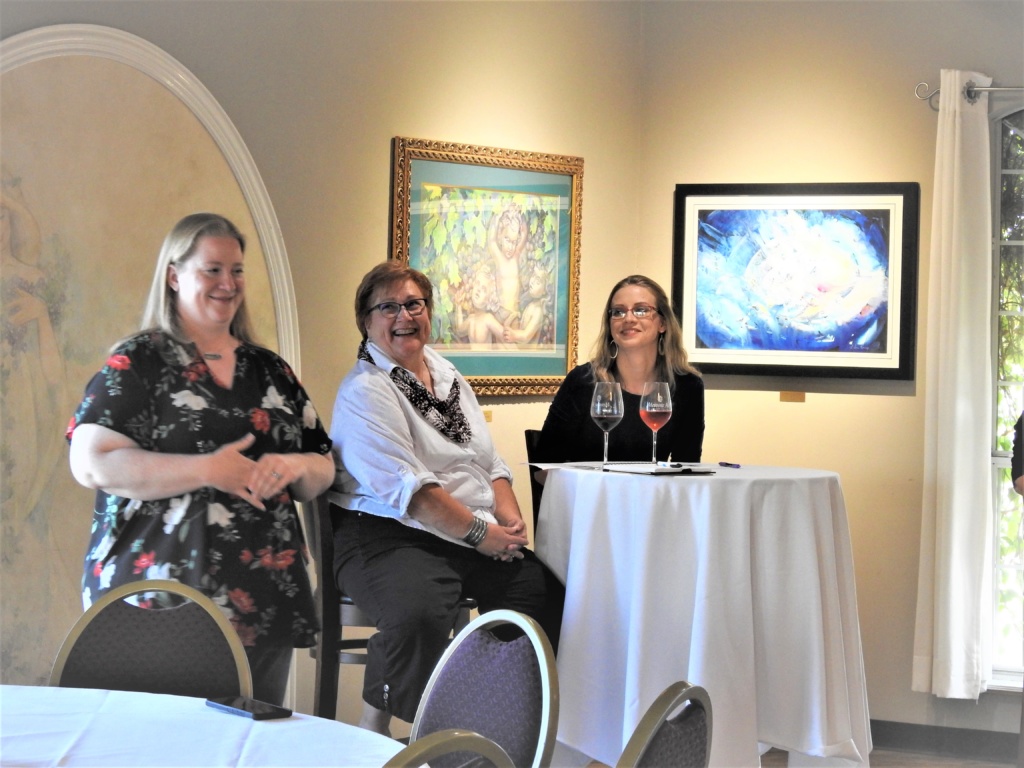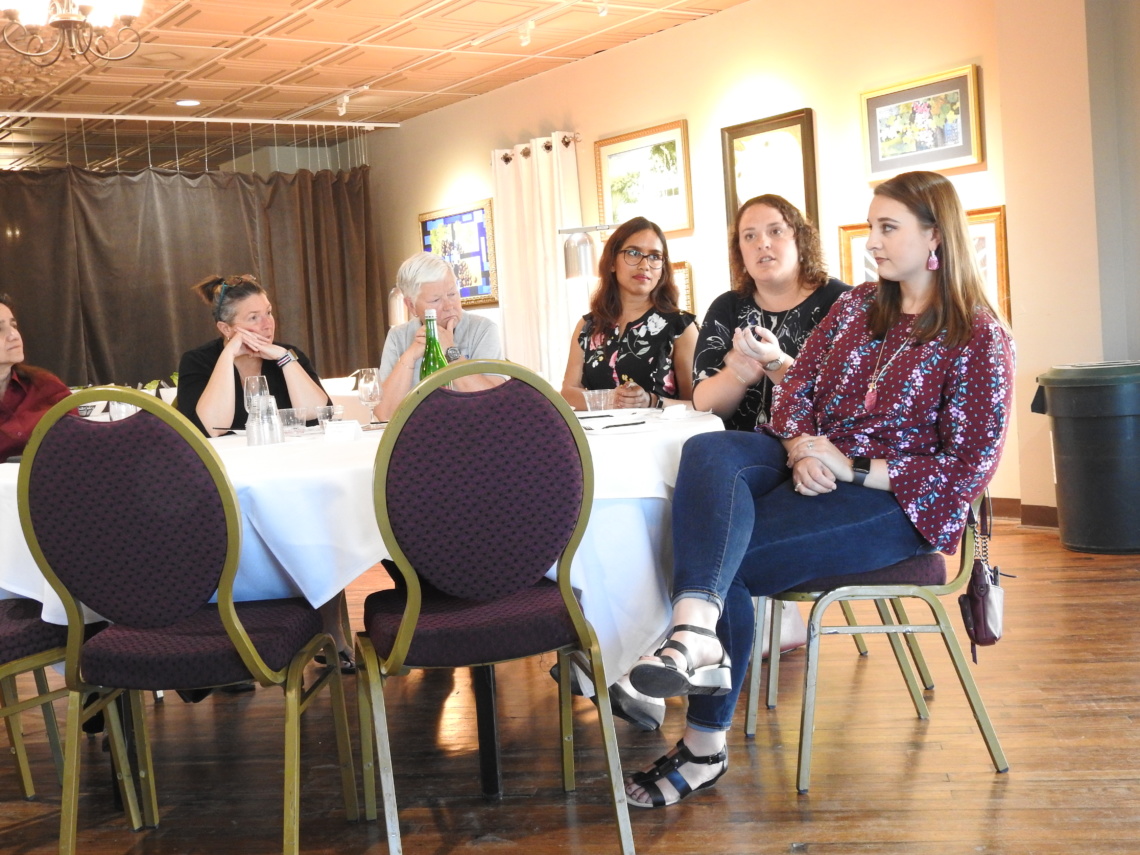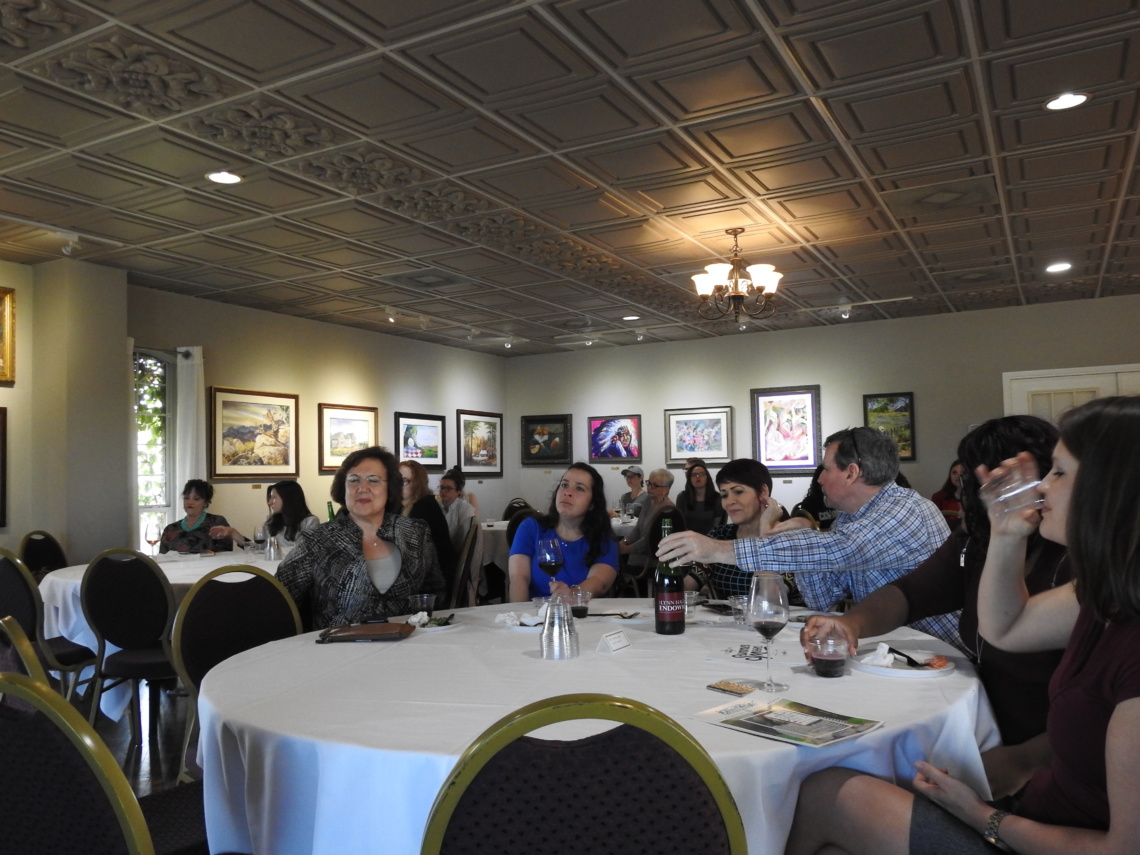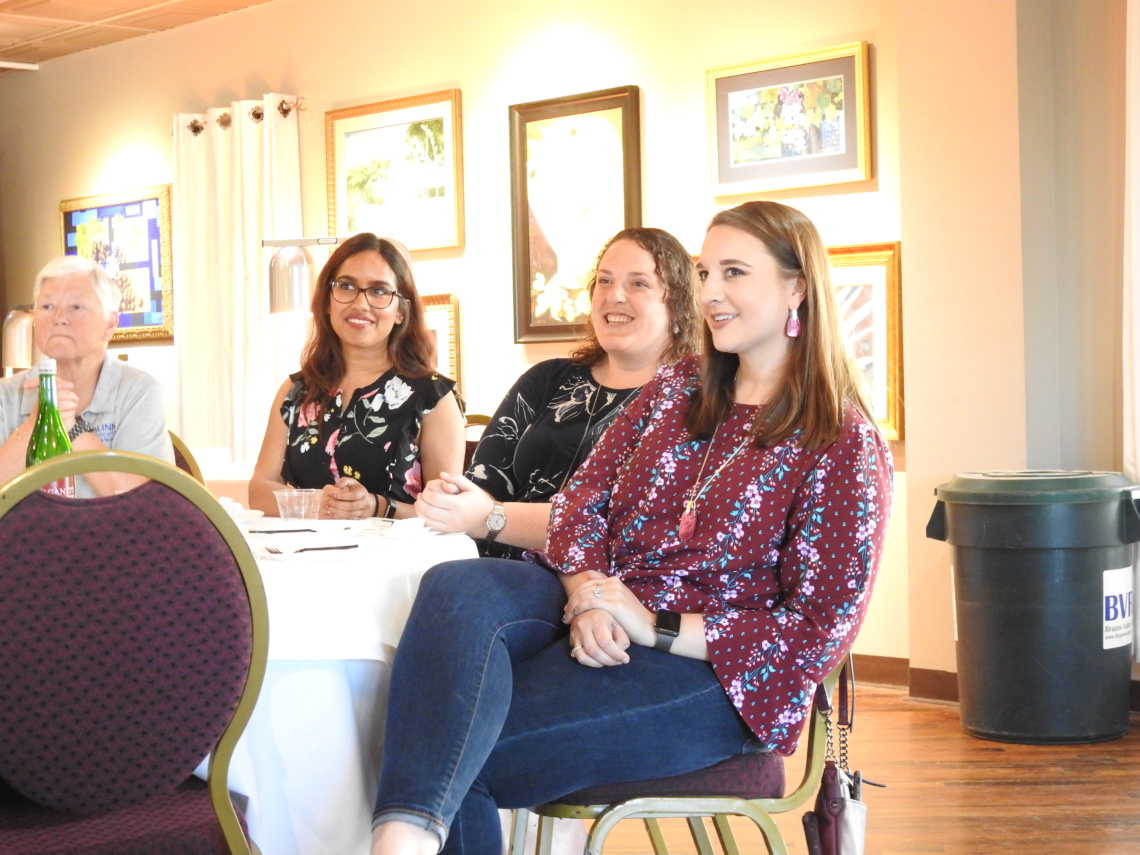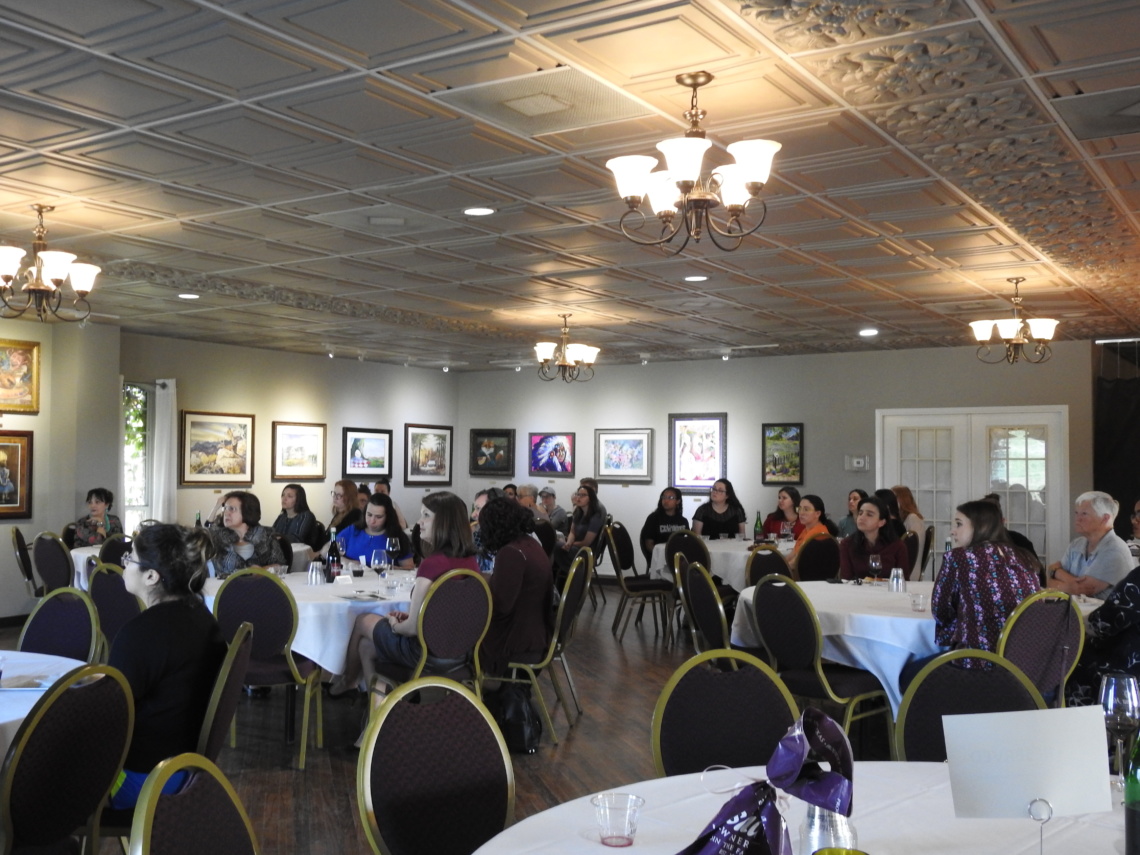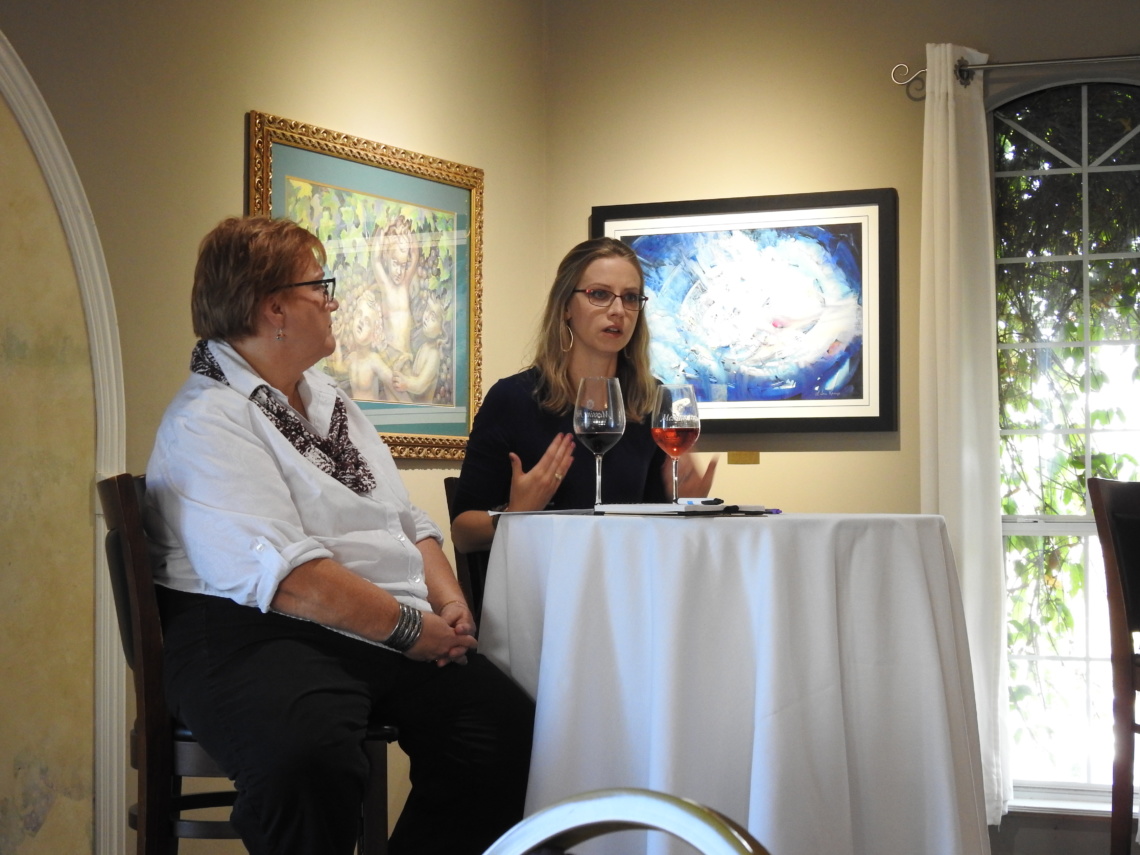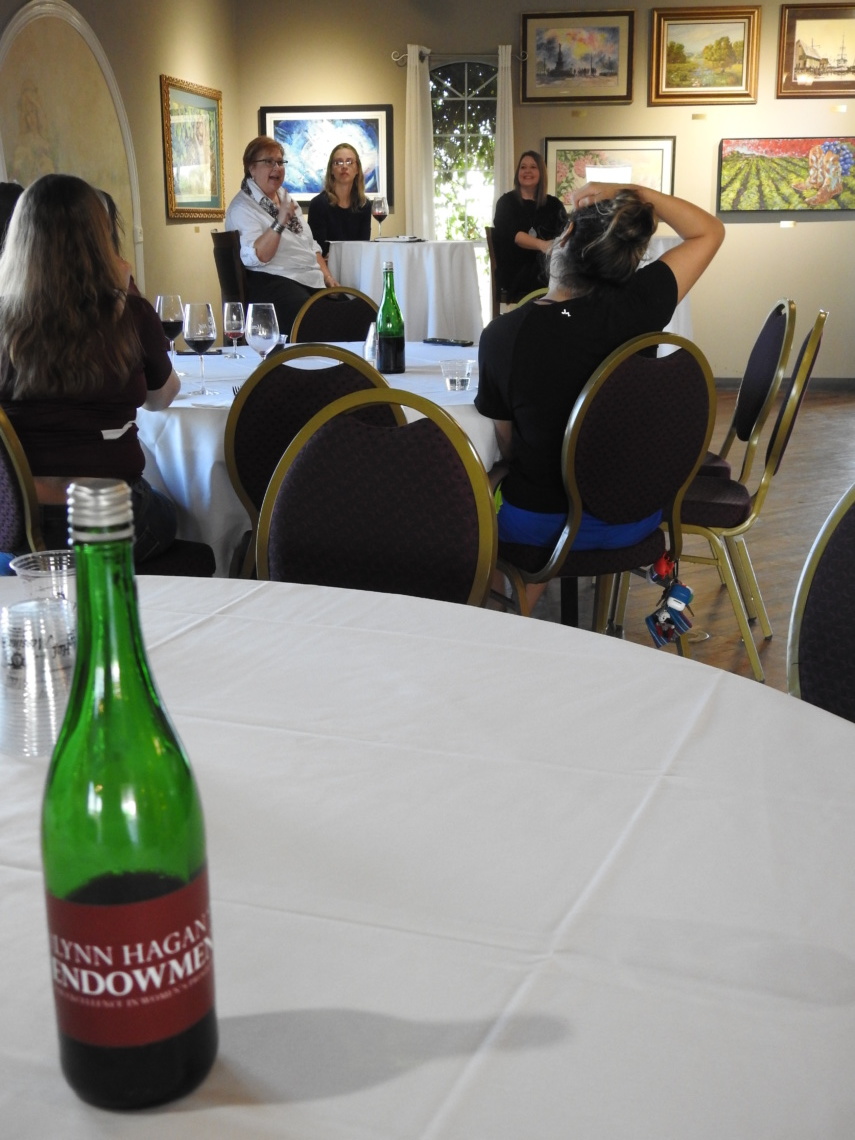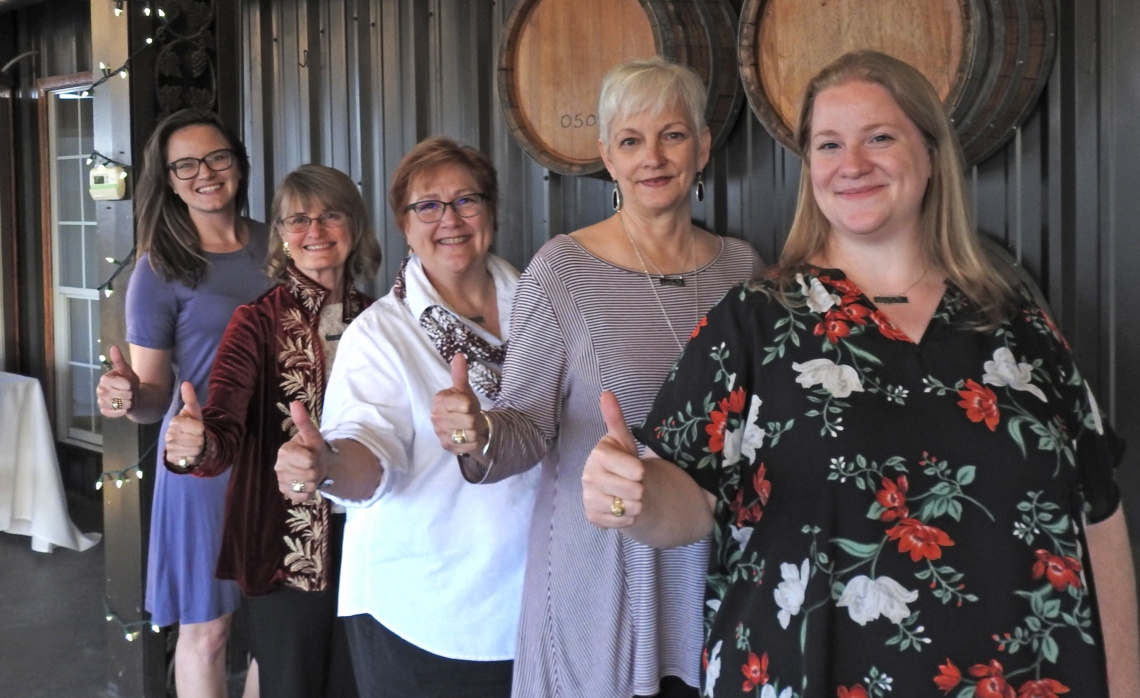Mental Health in Stressful Times – First Thursday event by The Aggie Women Network
Article & Photos by Lizzie West
The first Thursday of each month from September through April, The Aggie Women partner with Texas A&M’s Women’s Resource Center to host events with the sole purpose of connecting attendees with professionals in our community and provide information on the topic of the month. According to Heather Wheeler, Program Coordinator in the Women’s Resource Center and board member of The Aggie Women, after each April’s First Thursday event, anyone who has attended an event that year receives an email which offers them the opportunity to suggest topics for future First Thursday events. To ensure the topics are relevant to the attendees of the event, they select their topics from these nominations for the coming year. Long-time supporter and former board member of The Aggie Women, Lynn Hagan ’77, LCSW, served as the moderator for the First Thursday event this April. This latest event topic was “Mental Health in Stressful Times”.
Hagan’s experience includes over 20 years of clinical social work, and she specializes in PSTD treatment. She has worked with both in-patient and intensive out-patient clients, as well as currently working with US active duty military. She is also a recipient of the 2010 Aggie Women’s Legacy Award and has been featured on CBS News, WebMD, and the National Association of Social Workers as a mental health consultant. Hagan moderated for a panel consisting of two extraordinary women in our area.
Fran Duane, LCSW, represented the mental health professional on the panel. She has a private practice in the Bryan/College Station area and works with Encompass Health and Hospice. Duane’s professional history includes time as a clinical director of a residential treatment center, trauma resolution specialist, in-patient and out-patient therapist, and hospice social worker and administrator. Duane is also credentialed to work with individuals, recently juveniles, with sexual behavior problems, as well as victims of sexual-related abuse and all types of traumas. It is clear Duane has the resume and experience to provide insight on this topic.
Lauren Flake ’06 is the founder and editor-in-chief of Love of Dixie magazine and co-founder of Daughters of Dementia, an online community which connects women for hope and health. She has written articles for many well-known websites, like HuffPost, More to Life Magazine, and Austin Woman. Flake is also the mastermind behind the #TexasStrong flood relief effort in 2015. She has authored children’s books, Where Did My Sweet Grandma Go? A Preschooler’s Guide to Losing a Loved One and it’s companion book, Where Did My Sweet Grandpa Go? She has had her share of stressful times while acting as a caregiver to her mother, Dixie, who passed from early onset Alzheimer’s disease in 2013. Additionally, she has cared for ailing grandparents while also keeping focus on being an active mother and entrepreneur. With all this on Lauren Flake’s plate, she makes an excellent and relatable resource for the attendees to seek guidance on managing mental health during stressful times from the perspective of ‘every woman’.
This month’s topic covered many stress-related areas. Some examples of these areas are:
Most common forms of stress
“Students are a special kind of animal, but the stress that everyone has is usually a time management issue. We try to put too much into too little time. But, I always tell people that is kind of the surface answer we give people. What I think stresses most people out and what I deal with in therapy with people is the idea of competence. So it’s not really a time thing as much, it’s that we were made to believe over the last five or seven years that we are supposed to be competent with everything. And if you’re not competent with something then you have to become competent. And if you don’t become competent, then you’re not investing enough time in whatever it is you’re doing.” – Fran Duane, LCSW
“I am here to answer questions and talk specifically about mentally appropriate stress, versus stress and anxiety, versus mental illness, because there is a difference between all of those.” – Fran Duane, LCSW
How to identify and talk to those in the middle of struggle
“I used to bite my fingernails really badly. And when I stopped that I started messing with my cuticles. So I think everybody has something they do like that.” – Lauren Flake
“I know exactly [what you mean] when you said it’s in your hands. For me, I lose my keys. I can tell you that I’m just stressed to the max if I’m trying to rush out the door and I cannot find my keys.” – Lynn Hagan, LCSW
“That’s when you’d have to sit back and say ‘there’s too much on my plate’. Because, procrastination is the number one indicator of over-scheduling. You get so much on [your plate], you just don’t know where you can begin.” – Fran Duane, LCSW
“I like the phrase, ‘something’s different’. Always searching for an excuse – it could just be a haircut, you know. And so I’ve found that if you just say, ‘Hey, you know, I just really notice that there’s something different going on [with you]’. What’s happening is all of a sudden, you’ve opened a door that they can come and walk in, or they cannot. And you haven’t made stuff really awkward and you haven’t made them isolate [themselves] from you.” – Fran Duane, LCSW
When to seek professional help
“I didn’t seek counseling until I was in a very desperate health situation […] physical health-wise. There is a book called Your Body Keeps the Score: Brain, Mind, and Body in the Healing of Trauma [that is] about how trauma manifests in your body and if it’s not dealt with, it makes you physically ill and causes all these other issues.” – Lauren Flake
The moderator and panelists all gave great examples of ways to cope and manage stress:
Practice self-care
“…you have this long history of being a caregiver, and it was hard for you to transition to meet the care [of the] recipient. I kind of just had to learn that if I didn’t do – I hate to use the buzzword – self-care – if you don’t take care of yourself, you’re not going to be a good caregiver, right? If you’re trying to serve and help all these different people, at some point, you’re going to do a crappy job if you’re overextending yourself. So, learn your limits and take care of yourself so that you can take care of others.” – Lauren Flake (Speaking on her experiences)
“If I’m not creating, I’m not happy. Like that’s a huge stress management tool for me. So, that was really to say – writing and creating [are my self-care]. And so, you know, maybe it doesn’t always have to be for public consumption.” – Lauren Flake
Take a break from screens/Don’t rely on social media for validation
“…to question how maybe blogging or writing about it in this electronic way is either beneficial or [how] you didn’t find it beneficial. So if I get to the point where I am really craving that feedback – nobody read my posts, nobody […] you have to learn to recognize the red flag of, ‘Okay, I need to take a break’. Actually, I probably should do this a lot more often. Because if I take a break from my phone for a full day, it’s just a limit issue. But the part where the public consumption comes in, is [in] building community. So I mean, social media is a double-edged sword because yes, it’s all these terrible things […] but it’s also when I’m making connections, like personal connections with people who are going through similar things and building community in that way, too.” – Lauren Flake
Compartmentalizing
“It took me a long time to get to the point where I knew how to compartmentalize […] I put [the stressor] in a jar. And I screwed the lid on the jar really tight. And I took the jar and put it away on a tall shelf. This is not a daily, healthy exercise. No, [this only] got me through for a very, very short period of time.” – Lynn Hagan, LCSW
Cultivate a support system
“And one of the things about the rapport-building – like Fran talked about the underlying issue – there is trust, you’re trying to build trust with that person. And the more a person has trust with you, not necessarily as a clinician, but just as a friend, they’re going to be more open to hearing what you have to say. And that’s when you can take that next step.” – Lynn Hagan, LCSW (also a great tip for asking for help)
“…build[ing] a really strong support network among yourselves. You all are in school now but, when you get out, you may find that you can build a community […] Y’all can get together and meet once a week or once in a while.” – Lynn Hagan, LCSW
Asking for and offering help
“I think what [Lauren] is saying is true, that educating people that it’s okay to ask if somebody is okay. And trying to get people to understand that if people drop off or disappear from your class and you’re the instructor, the rules are in place that you have to do certain things about people that drop out, but a call is acceptable. A phone call to say, ‘hey, you haven’t been to class in nine days, are you okay? What do you need?’ I think is good.” – Fran Duane, LCSW
“It has to come from somebody they look up to. So, what immediately came to mind was – I was in a student organization and eventually in leadership of that organization. If one of the advisors that invested in me had said, ‘hey, you should probably go talk to a counselor’ […] I think that carries a lot more weight than a flier or a booth.” – Lauren Flake
“I would say you’ve got to be vulnerable yourself. I mean, people come to me as a resource, not because they think that I’m a mental health professional, but because they know that I’ve been through grief and caregiving, and I’m very open and honest about my struggles. And just because our struggles might not be exactly the same, I’m willing to be vulnerable, put myself out there to somebody who’s more likely to come to me and seek help.” – Lauren Flake
First Thursdays occur from September – April each year and the topics differ drastically throughout the year. Feel free to learn more at https://aggiewomen.org/events or by emailing Jess Yanker at jessy@studentlife.tamu.edu.

